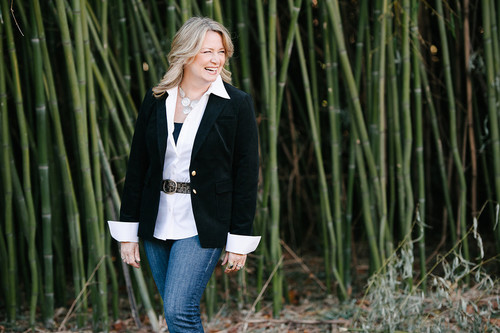DR. TERI GOETZ
Find the Cause. Treat the Root. Heal Yourself.
Find the Cause. Treat the Root. Heal Yourself.
Stop the Guilt Trap
 Guilt is an emotion you feel because you believe you’ve caused (or will cause) harm. Aside from objective evidence that you caused true (not perceived) harm to someone, I suggest you question the logic of your guilt. How did you come to the conclusion that you should feel guilty for wanting more? Let’s examine that. How could your wanting more be bad for the universe? How could it be guilt-worthy to desire to be more authentically you? If the reason for our existence is to find the full expression of being alive, then it means it is also for you to experience and live a full expression of your divinely unique and authentic self.
Guilt is an emotion you feel because you believe you’ve caused (or will cause) harm. Aside from objective evidence that you caused true (not perceived) harm to someone, I suggest you question the logic of your guilt. How did you come to the conclusion that you should feel guilty for wanting more? Let’s examine that. How could your wanting more be bad for the universe? How could it be guilt-worthy to desire to be more authentically you? If the reason for our existence is to find the full expression of being alive, then it means it is also for you to experience and live a full expression of your divinely unique and authentic self.
If you feel guilt for wanting more that’s one of the reasons many call guilt the useless emotion. Here, it serves no purpose whatsoever.
Nevertheless, women continually feel guilt and often blame themselves for nearly everything that goes wrong. I’ve seen women blame themselves for their kids’ behaviors, getting a pedicure or earning money through their art (because they falsely believe that profiting from art is “selling out”).
Women feel guilty for having fun when someone is ill (as if your sitting home will change anything), for choosing career and family, for wanting a life they love. I even remember my mother, who has a beautiful laugh, saying, “I’d better stop laughing or I’m going to have something to cry about.” We even feel guilty for simply enjoying ourselves.
Perhaps guilt developed when you were a child. Your expression of yourself might not have been socially acceptable, and you learned to squelch it. (This happens to many of us.) For example, a friend of mine recently told me a very poignant memory. As a 6 year old, she was invited to be in her aunt’s wedding. She simply loved her beautiful dress, and constantly twirled around just so she could watch it move. She had pretty shoes, flowers in her hair, and remembered feeling just lovely. When her aunt and her new husband were called out onto the dance floor for their “first dance,” this little girl ran out onto the dance floor to twirl and dance and be the full expression of how she was feeling. Her mother and grandmother quickly grabbed her and pulled her off the dance floor, telling her “NO!” She never forgot that moment, felt humiliated and said that was one of her biggest lessons in suppressing her natural inclinations.
Now, we can all picture this scenario, and you can see both sides. However, the message this little girl received was, “Don’t act on your feelings. Don’t be who you are.” This happens continually in our lives. It is the seed of the continual guilt you may feel for “indulging” in being honestly, genuinely YOU.
Most of the time, these messages come accidentally, or even through the best of intentions.
We all want our children to be socially accepted, adhere to certain societal norms. But so often, it is at the expense of personality or authenticity. Sometimes those in positions of power, be it a parent, religious leader or teacher, give us the message that we are not good enough when we are being ourselves, and we must adhere to other’s ideas of what is good and right in order to excel in life.
We learn to suppress our true nature.
Guilt can also be used to manipulate people. We see (and probably have done this ourselves!) how guilt can motivate kids to behave or be “more appropriate.” People use it with their partners and feel validated when they say, “How can you do this to me?” We respond with guilt because who wants to be responsible for hurting those we love?
Most of the time, mindful people don’t consciously intend to use guilt to manipulate people, but it is so effective, that it can become second nature. Of course, the reality is that people do this consciously, as well. For our purposes here, I suggest you just become aware of the role guilt plays in your interactions with others. When you feel guilt, check in with yourself about where it is coming from and how true is it that you are responsible for another’s feelings in this situation?
It is through internal investigation that you discover the answers. The problem is, we don’t want to take all that time and energy to look, to seek. It is so much easier to blot out the uncomfortable answers and clutter up our lives with stuff that makes those answers “go away.” We use food, alcohol, working too much – to blot out the feelings associated with guilt.
Steps for Releasing Guilt:
- Acknowledge the feelings behind the guilt. We often believe that we are supposed to feel a certain way and when we don’t, we feel guilty. Examine where the beliefs came from – whose values are these feelings reflecting? Yours, or someone else’s that you inherited but don’t necessarily believe?
- Decide on and set your boundaries. Really delve into why you are feeling guilty. Guilt often shows up in relationships and usually it is because expectations weren’t discussed ahead of time. If your relative wants to stay with you for two weeks, and you know you’ll drive each other batty after 3 days, do you really need to say yes? If you are in a romantic relationship with someone and you prefer to have some time alone, do you explore that with your partner, or remain silent in fear of causing hurt? These scenarios can lead to resentment, which leads to guilt. So decide where you want to set your boundaries. It’s okay to have needs and wants.
- Related to #2: discuss your feelings, desires and boundaries with others. When we do things out of guilt, there is always a nagging, underlying feeling of resentment. It permeates you and your life, and doesn’t allow you to enjoy yourself. It also creates tension for you, and for those you are with. For example, your sister wants you all to buy extravagant holiday gifts for each other. You may not be financially flush at the moment, but because you feel you should go along with it, you pull out your credit cards and buy. Soon resentment creeps in. Talk over your feelings, needs and desires with others to avoid unnecessary negative outcomes.
- Quit setting yourself up by setting goals you don’t believe you can accomplish. I’m all for setting goals, even ones that are fairly lofty. However, if you don’t break your goals down into step by step pieces that you may feel are a stretch, but know are do-able, fear that you can’t accomplish the goal will likely sabotage your success. Then guilt steps in and takes over. The guilt you feel over not achieving your goal builds each time, and getting started on something feels harder and harder. Do some mindset work, as well.
- Stop putting things off! Whether you feel guilty for not calling mom, extending that deadline at work, or not saying how you really feel, your guilt will undermine your confidence to move forward and stop you from success in any arena. Procrastination is one of the biggest harbingers of massive guilt. Start acting, even in small steps. Usually plunging right in is the best solution.
- Apologize and move on. We all say or do things we “shouldn’t.” People tend to do the best they can in any given moment, with the tools that they have. Forgive yourself and then allow others to forgive you. Then, actively let it go!

